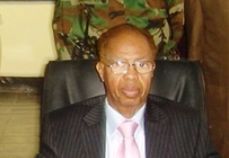Somali PM wants dialogue with Islamist opposition
December 2, 2007 (MOGADISHU) — Somalia’s new prime minister called on Sunday for dialogue with opponents to end an Islamist-led insurgency that a rights group said had killed nearly 6,000 civilians since the start of 2007.

In some of his first public comments on the conflict, Somalia’s new prime minister, Nur Hassan Hussein, said he was open to talks with an Eritrean-based opposition alliance.
“We are ready to speak with the Asmara group as long as they are ready to discuss with us,” Hussein told Kenya’s NTV news in an interview to be broadcast later on Sunday.
“We are not naming anyone from the opposition leaders, but we are ready for positive advice and criticism.”
Somalia’s interim government, formed in neighbouring Kenya in 2004 and due to hold elections in 2009, is under pressure from international backers to reach out to the opposition.
Hussein’s appointment at the end of November to replace sacked predecessor Ali Mohamed Gedi was viewed by many as an opportunity for reconciliation in a nation wracked by war since the 1991 overthrow of a dictator by warlords.
Hussein was finalising his new cabinet line up on Sunday, and promised it would be more inclusive. In the NTV interview, he said he would take advantage of new legislation allowing ministers to be chosen from outside parliament.
“This will put us on the right track … Soon we will have an all-inclusive government,” he said.
Hussein said he hoped stabilisation in Somalia would pave the way for the exit of the government’s Ethiopian military backers, who are resented by many Somalis. “As the situation improves, the need for Ethiopian troops will decrease.”
After forming his Cabinet, Hussein said priorities would be establishing security, helping resolve the humanitarian crisis — with 1 million internally displaced refugees, according to the United Nations — and promoting reconciliation.
“We will try to get the confidence of our people,” he told NTV reporter Yassin Juma in an interview in Baidoa, Somalia.
“There are displaced people who need to be assisted. We are very much committed to try to improve the situation.”
A career public servant and lawyer who worked as a senior police officer and attorney general, Hussein won wide praise for his work heading the Somali Red Crescent Society since 1991.
His interim government is the 14th attempt to establish an effective central authority in Somalia since 1991. Insurgents and Ethiopian-Somali forces have battled since the New Year.
Elman rights group head, Sudani Ali Ahmed, said he was in hiding and planned to leave Somalia due to pressure over his organisation’s reports on the violence.
“The government is looking for me because of my work. Some intelligence officers told me that if I don’t shut up they will shut me up,” he said by telephone.
Somali and Ethiopian officials have in the past disputed the Elman group’s figures and accused it of being close to the Islamist side. But many outside analysts believe the group’s figures are probably close to the mark. Ahmed said he has 106 people helping him collect and verify information.
(Reuters)
